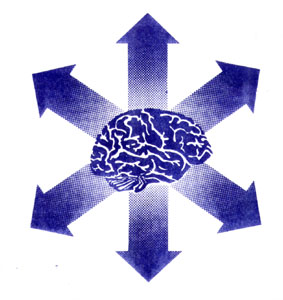
Some of my artist friends have remarked that over the past month or so that they haven’t raised a brush to canvas, or engaged in any other art practice. It seems that gardening and cleaning have taken precedence over art production in the past while. For many, isolation, the cancellation of art shows, and slow sales have dampened creativity. That’s been my experience too. I’ve done a little drawing, but the bulk of my time recently has been taken up with cleaning my studio and workshop and doing maintenance projects around the property to the extent that my energy and pain levels allow. I have not written anything in quite some time. My last blog post was about our gardens here and not so much about my myeloma or Covid-19. Carolyn’s gardens have been so uplifting!
That said, Covid-19 certainly has me tongue-tied at least as far as talking about my cancer goes. The myeloma that I’m plagued with seems to have more or less evaporated, at least according to my lab results. It’s still incurable, but it’s likely that I will go into remission by the end of the summer and thankfully get a break from chemotherapy, I’m hoping for a long break. Of course, the oncologists promise nothing and I can understand that. So, it seems, myeloma is not the cause of my current health deficits, rather, the chemo drugs are largely responsible for the many side-effects that I experience every day. Old age, of course, has slowed me down. As Robert Sapolsky writes:
“we are now living well enough and long enough to slowly fall apart. The diseases that plague us now are ones of slow accumulation of damage—heart disease, cancer, cerebrovascular disorders.” (from “Why Zebras Don’t Get Ulcers: The Acclaimed Guide to Stress, Stress-Related Diseases, and Coping (Third Edition)” by Robert M. Sapolsky)
Yeah, that’s me. But, strangely enough, about a month ago I started feeling better. I suddenly got more energy. I could use my shop again and do things I have been unable to do for months. I seriously doubted that I would ever be able to handle tools again, especially chainsaws and the like, but I am. It’s wonderful! It makes life worth living again. I think my improvement is in part the fact that my body is adapting to the chemo drugs.
For some time I seriously wondered if I was not destined for a few more years of moderate to severe constant pain, low energy, dizziness, peripheral neuropathy, bowel issues, irritated eyes, headaches, and various other unpleasant bodily sensations. Death seemed preferable, frankly, although the thought of dying never did appeal to me at all. I may be able to intellectually accept the idea, but the reality of end times is another thing entirely.
Feeling better was such a relief. Then Covid-19 assaulted our lifestyles and sociality to an extreme, and we’re still trying to figure out where we go from here. Confusion reigns. What will the summer be like? Will the kids be going back to school in the Fall? Will we be able to get out canoeing at all this year? These are all open questions with no definite answers.
For a sociologist, Covid-19 and other potential future pandemics are an unintended consequence of globalization and are inherently interesting by that fact. The world has shrunk substantially over the past forty or fifty years in ways that are not readily obvious or apparent. Manufacturing businesses only incrementally moved their production operations off shore. The changes were, and still are almost imperceptible. It’s hard to pinpoint the exact time when refrigerators, car parts, computers, tools, etcetera were no longer produced in North America, even though they are still largely designed here by corporations that still control their manufacture and assembly in places like Wuhan, China sometimes in plants they own and sometimes by Chinese contractors.

China has made it easy for them by establishing export-processing zones free of taxes, health and safety regulations and with low wages.
We know the container ships are out there. We know the airlines blanketed the earth with flights carrying both cargo and passengers at rapidly rising rates, and the internet has made just-in-time (Japanese-type) production possible along with the easy flow of finance capital. I can’t imagine there’s any turning back the clock on globalization, but the pandemic has exposed one very serious Achille’s heal of global corporate capitalism. When commodities and people move so easily and necessarily all over the globe in such immense volumes, it’s no big deal for viruses to hitch a ride on unknowing and unsuspecting travellers. The price of cheap commodities is exposure to viral threats that were previously contained in specific geographical areas. Smallpox was not the first pandemic but when it was introduced to North America hundreds of years ago now it killed tens of millions of indigenous people in wave after wave well into the Nineteenth Century. The Black Death in 14th Century Europe probably originated in China and arrived in Europe via new trade routes. It also killed tens of millions of people. We open up long distance trade at our peril. History has taught us that, but we haven’t learned anything from it. Seems we failed the exam.
So now what? Well, a friend (an anthropologist) and I discussed this last Monday evening and we concluded that although corporate America and Canada would love to control the process and the narrative, the more likely issue for business profits will be whether or not individuals like you and I gather up enough confidence to get out there and spend money on services and commodities. If we don’t, or are slow on the uptake thanks to successive waves of Covid-19, business will flounder and will have to rethink a globalist strategy that for decades has laid a golden egg for them. That won’t be easy for a number of reasons, one being that productive capacity has escaped national containment and it’s near impossible to produce a Ford motor car these days without assembling over four thousand parts made all over the world in factories from Mexico to China to Sri Lanka and India. It used to be that Ford produced cars in Dearborn, Michigan from scratch, bringing in all the raw materials necessary in the production of a car and making all the parts on site. Those days are long gone. Can they ever return? Maybe, but the price of vehicles and everything else is bound to rise if the nationalization of production were to be successful, possibly making most vehicles and most other commodities unaffordable to an increasingly impoverished workforce. Catch-22 is real. We’re living it right now.
Thankfully we still have our garden. Here are some pictures for you: The first three images are of the same scene taken a week to ten days apart. The greening has been very fast thanks to ideal growing conditions. The others are just a collection of pictures of flowers I chose at random. Enjoy!

















